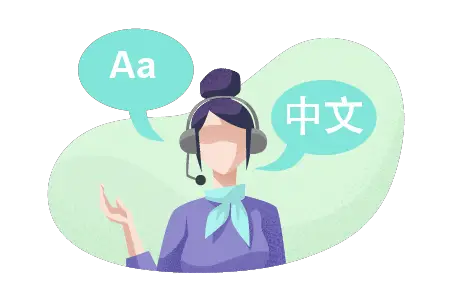
Do You Want To Become A Professional Literary Translator?
Are you a new translator, you’re looking for guidance? Do you want direction? Do you want someone to hold your hand and give you the right tips to get started? Then you are in the right place. I was also guided to be where I am now, I wanted someone to tell me if I was doing the right wrong thing. I’m here to help you get started. I’m going to give you the necessary tools for you to succeed and then it is up to you, to take them and make something of yourself.
What are 15 Fundamental Tips You Should Know, if You Want to Become a Professional Translator?
- It’s not all about your language skills
- Language skills for successful, professional translators are secondary. Why? Because if you want to be successful you have to make money. And making money means finding clients. I’d much rather be a decent translator with killer marketing skills finding clients than the most awesome translator ever with no skills at finding new clients. The first way, you’ll make money. The second way, you won’t. It’s as simple as that.
- You have to solve a problem
- Translation is just like any business. In order to succeed, you have to solve a problem. You have to be the solution. And in order to do that, you have to know what problems you are trying to solve. Do you know what your translation clients need from you? Or are you just guessing?
- Success takes real work
- It’s easy to look at successful translators and complain about how they have it so easy. How they are successful because of this or that. But what we don’t see are the hours of laboring in the darkness that they’ve gone through. Don’t think that success is easy. It takes work. And when you’ve done that, it takes even more work.
- Tactics are for lazy people
- Don’t get caught up in the entrepreneur hype when you first start out.
- You know what that propaganda is.
- “Get on Twitter!” You have to be on Pinterest! ”Instagram is where it’s at!”
- Instead of tactics, focus on your strategies. Figure out your goals and make long and short-term plans to reach those goals. The only real thing you need is your own website. As a translator, you want a way for people to reach you, find you, and know who you are. A professional website is the best way to do that as a translator.
- Professionals get paid
- To be considered a professional translator, you need to learn how to get paid.
- If you love translating for the fun of it, fine. But if you want to treat it like a business, that means figuring out how to get people to pay you for your service and expertise.
- Don’t feel like you have to provide free translations to your local community center just so you can “pay your dues.”That’s unintelligent. If you’re a translator, act like one.
- Treat it like a business and do work that gives you money in return.
- You don’t need credentials
- And speaking of paying your dues, you don’t need permission to be a translator.
- You don’t need a translation certification. You don’t need another translator’s blessing. You don’t need a college degree. You don’t even need to have lived in a country that speaks your second language. If your language skills are good enough, and you can market your services effectively, you’ll get paid.
- You need a medium of communication
- Remember that part about tactics? You need a way to get your message out
- Ways for potential clients to find you, trust you, and hire you. Some people use Face book.
- Others use Twitter Or YouTube. I don’t recommend any of these.
- Why? Because these are not your websites. You could be banned for no reason from any of these platforms and your audience would disappear overnight.
- However, if you have your own website, you own the platform. It’s your place on the Internet.
- And nobody can by chance take it away from you because they disagree with your message or any other reason.
- So, get your website.
- You don’t need fancy equipment or software
- Be careful when you first start out as a beginning translator.
- Don’t buy into the propaganda that you have to own the latest and greatest translation software or computer equipment. Don’t spend millions of money on translation software before you even know if you’ve positioned yourself well enough to earn that money back.
- Instead, use free options.
- Google has its own Translators tool.
- Sure it might not have all the bells and whistles that come with an amount program, but it will get the job done.
- Your equipment doesn’t make you successful. You make yourself successful.
- Then you can get the equipment to push you even further.
- Communication is key
- One of the most important translation rules for new translators is that communication is important. Not just communication itself. But also knowing how to communicate effectively.
- As a successful translator, you will not hide behind your email. You will not hide behind your website. You have to be in front of customers, either in person or virtually.
- Make sure you know how to talk on the phone. Know how to use Skype or Face time.
- Understand that you need to include confidence in yourself and the services you offer.
- And that confidence has to be conveyed to your potential clients.
- They don’t want to entrust their business to a loser. Show them you are a winner by how to talk to them.
- Don’t care what others think
- As a translator just starting out, you need to not care what other people think.
- You’ll have lots of people tell you that you’re wrong, or you’re wasting your life or whatever else.
- The reason they will say these things is because you will no longer fit into the mold of what they are stuck in. They want out of their boring life.
- You are trying to make something more of yourself and they don’t like it because it shows that they are lazy and not willing to work to get what they want.
- Be prepared to put in the time
- Everything worthwhile takes time. There are no shortcuts.
- If you want it, you have to be willing to work for it. Daily, monthly or even yearly.
- But if you’re consistent, you’ll be a success. You’ll make it where you want to be.
- Imagine yourself already there and let that give you motivation when times get hard and you feel like you’re stuck.
- Lay off the social media
- Putting in the time means making sure your efforts are directed where they need to be.
- Finding clients, making money, marketing your services and Networking.
- It doesn’t mean wasting time on translator forums it doesn’t mean wasting time on social media.
- Those are time sucks. If you want to be on social media, fine.
- But don’t fool yourself into thinking your building your business by posting on Twitter or Face book.
- You can do that when you have a consistent stream of 1,000+ visits a day to your own communication media, like your own blog.
- Look for ways to diversify
- Some of the most successful translators don’t limit themselves only to translation.
- They offer complementary services. They figure out what they enjoy and see how they can solve other problems their customers have. When I was translating full-time, I noticed that the clients I translated for also need native language writers. I always felt confident in my writing abilities, so I started adding that to my services offered. Pretty soon, writing overtook my translation.
- I found it more rewarding. So I started offering it more. I would have never evolved in that direction had I not been willing to branch out and try something new.
- If you’re a translator, you can transition to a number of other ventures.
- You just have to be open to the opportunities.
- Some of the most successful translators don’t limit themselves only to translation.
- Certification is not necessary
- Don’t fall into this trap. Don’t think that you need to be certified.
- Don’t think you need to have permission from anyone to start. Just start.
- Certification can be useful. But it is not necessary. Let me say that again.
- Translation certification is not necessary to becoming a professional translator.
- It has to be done your way
- One of the final translation rules for new translators is this:
- Remember that your path is and will be different than any other translator.
- It will be different than mine. It will be different than your mentor’s.
- It will be different than the path of any other translator you read about online.
- And that’s how it should be. You are unique and the services you offer are unique.
- Your personality makes you different than others. That will lead to your success.
- But you have to follow these translation rules.







